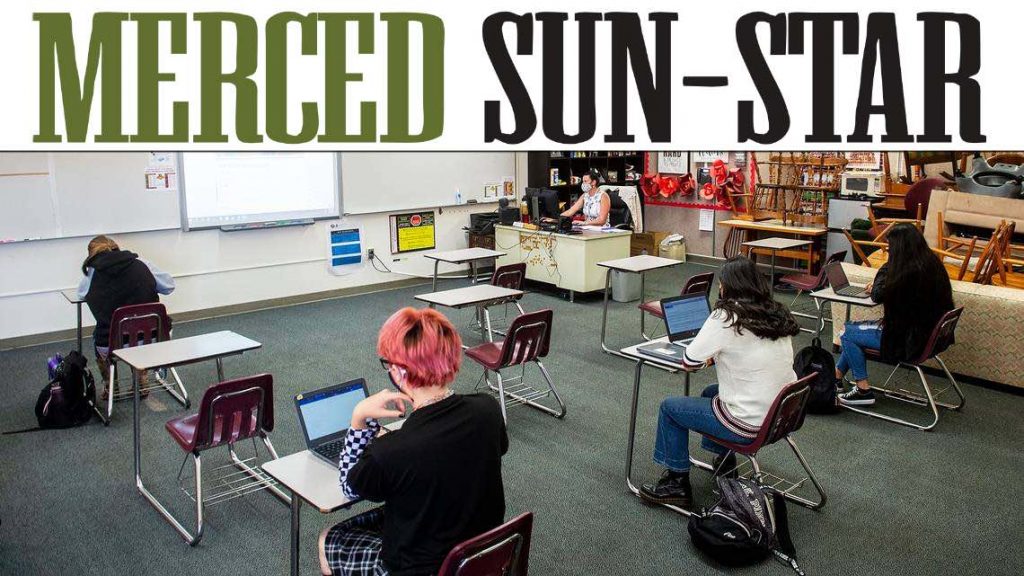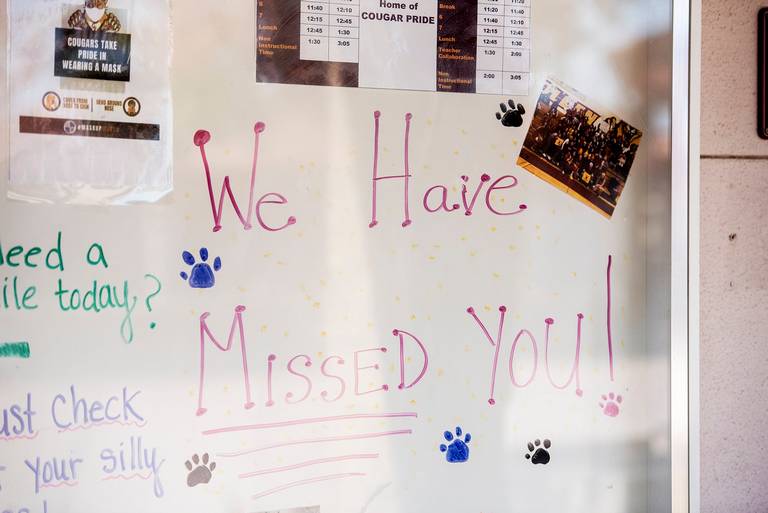Delhi Unified School District has highest graduation rate in county using Acellus

MERCED COUNTY GRADUTION RATES AT HIGHEST POINT IN RECENT HISTORY
Despite many limitations placed on Merced County high schools during the COVID pandemic, there was a silver lining in a year otherwise marked by hurdles and challenges. Merced County high schools graduated 93.30% of its seniors in 2020 — a level that beat the state’s overall high school graduation rate of 90%. Plus, it’s the highest graduation rate that local education officials can remember in recent history.
The data point was one of the highlights of Merced County of Office of Education’s 2020 Annual Education Report. “This is the highest level of performance I’ve seen in my years as a superintendent here in the county,” said Steve Tietjen, county superintendent of schools. “And I started in Los Banos in 2007. So this is my 13th, 14th year in the county. It’s the highest year that I’ve seen here in Merced County for graduation rates.”
Tietjen wasn’t surprised, largely because of a program called Merced County Project 10%. It is a program MCOE started years ago in partnership with the Merced County District’s Attorney’s Office under then-District Attorney Larry Morse II to improve graduation rates by 10 percent.
The project stopped for a bit once the pandemic hit the nation. But before COVID, a large part of the program involved UC Merced students going to different middle schools across the county. There they would talk about the benefits of working hard and graduating from high school. That message was made “loud and clear to the county,” Tietjen said.
Countywide, the graduation rates by district included: 1). Delhi Unified (98.20%), 2). Hilmar Unified (97.10%), Los Banos Unified (96.10%), Merced Union High (94.80%), Gustine Unified (94.20%), Dos Palos-Oro Loma Joint (93.30%), and Le Grand Unified (92.50%).
In last year’s MCOE report, the state average was 88.10 percent, and the county’s average was 92.10 percent. The county’s K-12 school districts serve an estimated 60,000 total students annually — roughly 4,000 to 4,500 seniors and at least 4,000 graduates. “We want to make sure that everybody has a chance to have that level of success in life so when they’re hitting the pavement, either (for) the student that’s looking for work or a former student that’s going into college, that they have that success built in,” Tietjen said. The message seems to be resonating at Delhi Unified, which topped the county graduation rate list. Cristian Miley, principal of Delhi High, said the graduation rates were so high because the school invests in the emotional well-being of students before diving into the educational portion.
Delhi High serves 815 students among 2,450 total Delhi Unified students. “It really goes back to valuing the whole child and it goes back to really knowing that you’re creating a learning community that is inclusive and truly gets to know its population,” he said. “It’s really the essence of what we do.”
Miley wants every student — especially students who are low on credits — to graduate. The school uses Acellus Academy, an online program that offers a graduation pathway program and works with high school students on all academic subjects. Students can also take advantage of the program by taking Advanced Placement courses.
The school also has Career Technical Education courses and the Delhi Medical Academy of Science, plus pathways to study automotive, criminology, forensics, and agriculture. Miley said having those options “gets kids excited,” which might be contributing to the motivation behind the higher graduation rates since students get to pursue their passions, he said.
DISTANCE LEARNING RESPONSE
The report also highlighted the various ways districts coped during the pandemic, to ensure student learning. Schools have ensured students access to laptops and wireless, especially in the rural communities like El Nido and Le Grand.“El Nido School District partnered with T-Mobile and MCOE Information Technology Services for internet and mobile hotspots that gave online access to 100 percent of the school district’s families,” the report read. In partnership with AG Link Inc, Le Grand Elementary School District provided boxes of fresh meat and produce for families in Le Grand. The district partnered with Raley’s Supermarkets as well in providing wireless hot spots for students and families. To help with the challenge of distance learning, MCOE created a distance learning website on April 17. The site provides resources for families and educators.
MCOE also utilized their television broadcasting station to continue showing educational content. One recent instance was partnering with the Merced Symphony to ensure students could watch the Pops concert.
Most districts now, however, have reopened for hybrid learning. Districts to reopen this month for hybrid learning included Merced Union High and Los Banos Unified, which reopened for all students except for their high school students. They are expected to return mid-to-late April.
Smaller school districts like Snelling-Merced Falls and El Nido Elementary School District were able to stay open regardless of the tier status, due to their small size and having a waiver in place. Those districts practice social distancing and mask wearing.
TESTING AND VACCINES
In reopening most districts for hybrid learning, numerous district employees have taken steps to get vaccinated. Before the increased demand for vaccines, one of the biggest questions school districts had was how to identify staff members who tested positive for COVID, the report said.
In December, the McSwain Elementary School District became a pilot for a new statewide program for rapid tests administered to both staff and students on the school site. By January, many Merced County school districts implemented a testing program for staff through a state lab in Valencia, according to the report.
Most tests are done on school grounds, and results can come within 24 to 48 hours.
While Tietjen is uncertain what the future status of schools will look like in August, he said, MCOE will continue asking for more testing and vaccines.
“Now we’ll get there eventually, we’re going to fly over it, we need to make sure that the governor and other leaders in the state work to leverage whatever they can to support us,” Tietjen said.

Recommended Posts

New Acellus Course: Life Science
April 14, 2025

New Acellus Course: British & World Literature – English IV
April 11, 2025

New Acellus Course: Grade 1 Social Studies
April 11, 2025

